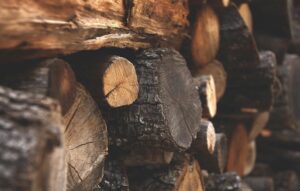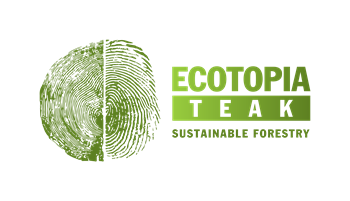
Wood producers call for relaxed regulations to reactivate the sector.
Panamanian authorities claim that the necessary actions are being taken to take advantage of the U.S. tariff increase.

Although Panamanian authorities and businesspeople foresee that the wood sector will be one of the beneficiaries of the U.S. tariff increase, teak producers argue that these measures hinder their strategic planning. Therefore, they are requesting the State to demand fair treatment under the Trade Promotion Agreement (TPA) with the United States (U.S.).
Bianca Frieda Moran, a teak exporter for the past 15 years, points out that the unilateral and ever-changing decisions regarding tariffs make it difficult for companies to cope with such changes, ultimately affecting global trade.
Amid this uncertainty, she suggests that Panama should request equal treatment from the U.S. in terms of trade promotion. While exports of teak in the form of logs, blocks, and boards are tariff-exempt, value-added products such as kiln-dried, planed, or profiled teak face a 10% tariff.
This is a contradictory measure, according to the exporter, since the U.S. does not import teak logs as it lacks an outdoor furniture industry.
Such manufacturing is primarily carried out in Vietnam, which also faces a 10% tariff but has a greater industrial capacity than Panama.
She mentions that Panama cannot compete on equal terms in the manufacturing sector due to multiple factors ranging from lengthy procedures to the lack of a forest policy that protects both the natural environment and wood traders.
“The absence of a clear forest policy aimed at the commercial development of the sector has hindered the industry, despite more than $500 million in foreign direct investment in Darién, which has created thousands of jobs in an area with no formal employment alternatives,” she told Panamá América.
Frieda Moran urges authorities to stop viewing teak producers as an environmental problem, instead recognizing them as “a solution for sustainable forest coverage and a generator of foreign exchange.”
She also believes it is necessary to reconsider whether the sector should remain under the Ministry of Environment or be transferred to the Ministry of Agricultural Development (MIDA), as has happened in other countries.
The exporter reiterates that without guidance, classification, technical support, and market access, the investment made by small landowners will be lost, and there will be no “true” development of the sector.
“International trade requires legal certainty, institutional efficiency, and a national vision,” she asserted.
A few weeks ago, during a meeting with exporters from various sectors, the Minister of Commerce and Industries (MICI), Julio Moltó, assured that the necessary actions are being taken to capitalize on the U.S. tariff increase.
She added that this is an opportunity for Panama to become a hub for collection and packaging, opening up to new markets.

About us
Ecotopia Teak, S.A., we are a family-owned company dedicated to reforestation, harvesting, and exporting wood from commercial plantations. We work under high production standards and with social responsibility to obtain high-quality wood according to the needs and demands of national and international markets. Additionally, we actively contribute to the local economy by creating employment opportunities in the communities where we operate. Our commitment is to lead the industry in sustainable reforestation and wood production, preserving our natural resources and building a greener and more sustainable future.


